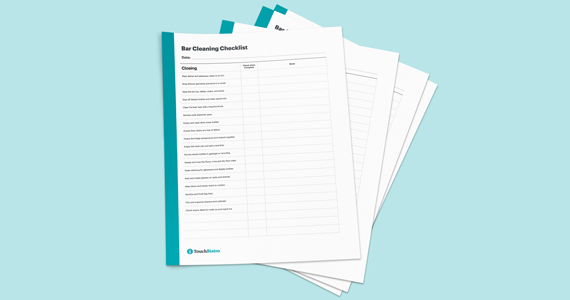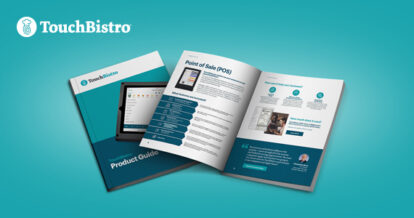A great bar manager knows so much more than how to make a killer cocktail. They also know how to manage stock, your staff, your menu, your customers, and your sales. Your bar manager shouldn’t be the master of one trade; they must be a jack of all.
In this post we’ll tell you how to find your star bar manager. We’ll share which personal attributes they should have and what kind of experience they need under their belt. Then we’ll give you some interview questions to ask so you can extract the information you need from your candidates to make your final decision.
You know better than anyone – the people you hire can make or break your business. So let’s get you off on the right foot to finding your star player at the bar!
Personal Attributes
Your bar manager candidate may have a great resume, but do they have the right personality for the job? A bar manager needs a mix of social intelligence, organizational skills, attention to detail, and business savvy to manage a fast-moving bar.
Here are 11 qualities to screen for when you’re looking for your ideal bar manager.
Cool under pressure: The best bar managers are calm when they’re in the weeds, no matter how busy the night. They cope well with stress and do what needs to be done, whether that means getting their hands dirty when an employee calls in sick at the last minute or delegating responsibilities when the bar gets unexpectedly rammed.
Rational and reasonable: On a busy night, it’s common for tension between staff to reach a tipping point. Your bar manager must be able to diffuse emotional conflicts and direct staff to the task at hand. They must also be able to lead by example when handling an unruly customer who’s probably had one too many, or smooth over customer service errors so that unhappy guests leave satisfied.
Strategic with delegation: The ideal candidate will have four arms and two brains… And when that’s not possible, they’ll know when to delegate tasks to trusted staff members to free up their own time for managerial priorities.
Multitasker extraordinaire: They can juggle a packed wood of demanding customers, staff questions, and a never-ending chit waterfall – all while keeping high-level managerial tasks in mind, like managing stock levels and preventing bottlenecks.
Creative: Your bar manager will likely be in charge of crafting the drink menu with the restaurant sommelier, if you have one. They’ll need to think creatively about cocktail recipes while researching the latest trends in cocktails, beer, spirits, and wine. Your star bar manager will know how to give customers what they want while staying on brand. (While the ever-complicated Rum Martinez might look cool with its smoke diffuser and lit cigar, it might not be a the most practical drink to add to your menu.)
Star teaching skills: Great bar managers run on the ethos, “Teach a man to fish, feed him for life.” Bar managers must be passionate about training staff so your whole team can become the well-oiled machine it should be.
Energy for days: Sixty-hour weeks? Double shifts? Split shifts? Close to open? Your bar manager must be a machine, able to work long hours and longer weeks. You need someone energetic, passionate, and dedicated.
Great listener: Bar managers know when to speak less and listen more. Essential to any customer service position, your candidate should be able to discern what customers and staff are really saying, whether that’s airing the big game or scheduling a team that jams well together.
Problem solver: When the vodka runs dry… When the chit paper gets jammed… When the dining room’s on fire… Bar managers need to think on their feet, all day long. They need to know how to solve a problem right away and take steps to make sure it doesn’t happen again.
Team leader mentality: Bar managers must be as encouraging and supportive as they are stringent and authoritative. While every manager has their own style, cultivating a healthy team means leading by example, upholding the values of the restaurant, and acting as a supportive and fair leader for every bar staff member.
Business savvy: Your bar manager must always have the bottom line in mind. They need to know, for instance, that scheduling is as much about minimizing labor costs as it is about streamlining processes. They need to understand that inventory management isn’t just about filling the fridge, but also about analyzing demand and consumption. Finally, when they’re crafting the drink menu, they can be creative while maximizing available resources for ROI, profits, and taste.

Use this customizable bar cleaning checklist to keep your restaurant bar looking spotless.
Experience
What came first, experience or personality? Just as the ideal bar manager will have the personal qualities to manage a bar’s ecosystem, they’ll have the proven experience to back up their natural abilities. Here are some resume items you should look for.
Well-rounded restaurant experience: From bar back to host to dining room server and bartender, an ideal bar manager candidate has experience in most FOH positions. Why is well-rounded experience so important? Because the bar affects every part of restaurant operations and every customer who walks through the door. Experience in multiple establishments is also crucial so you know you’re getting someone with a sense of what several bars look like, from the well-oiled machines of the world to the outright train wrecks.
Dedication to the hospitality industry: Your candidate will ideally have five years in the restaurant industry and at least two years of bartending experience.
Experience with financial reports: Your bar manager must be able to easily navigate numbers to understand how to staff to optimize labour costs, order booze to maximize profits, and craft a drink menu that is cost effective and profitable.
Tech savvy: While a bar manager must be a master of the cocktail craft, they must know the technology used to craft managerial reports, manage the POS, and optimize inventory tracking. Your ideal candidate knows multiple POSs and analytics tracking, while also maintaining an interest in new technology to improve restaurant operations.
High school + vocational education: Basic high school education might suffice, but additional schooling in business, bartending, culinary design, and mixology are advantageous skills that will serve to improve your bar. These certifications also demonstrates the candidate’s dedication to their craft.
Licensing and certifications: Whether it’s health and safety, first aid, or a food handler’s certificate, your bar manager should come complete with all necessary licenses and certifications needed to complete the job.
Ordering experience: Your ideal candidate should know how to order and fill inventory. A candidate who can demonstrate an understanding of sales metrics and how they relate to inventory will help profitability in the long run.

Use this customizable bar cleaning checklist to keep your restaurant bar looking spotless.
Interview Questions
Now that you have an understanding of the personal attributes and resume a bar manager should have, how do you identify “the one” in a herd of applicants? Here are some questions to help you pick them out of the crowd.
1. What is your management style?
Remember: you’re looking for someone who is a teacher, a relationship builder, a listener, a voice of reason, and a leader. This question will show you how your candidate views themselves within a team.
2. What is the one business report most essential for this position?
This question speaks to the candidate’s ability to analyze and act on report results.
3. What is one cocktail, one beer, and one wine you would add to our drink menu, and why?
This question will show you several things: your candidate’s ability to be creative, stay on brand, and generate profits.
4. Here’s a situation: the bartender, one of your staff, over-serves a customer who’s getting out of hand. How would you handle the situation?
You want to look for two things here: a short-term and a long-term answer. How does the candidate handle the situation in the moment, and how do they teach the bartender to prevent this scenario in the future?
5. If you were to hire a bartender, what are the top three qualities you would look for and why?
What someone looks for in their team is a direct reflection of their own qualities. Their response tells you who they’ll want to hire and how that person fits into the bigger picture, both with their skills and what they add to team dynamic.
6. What’s the best way to make and garnish a Manhattan?
It’s a mainstay drink. Can they make it off the top of their head?
7. If a guest said their drink was too weak, what would you do?
This question is about the bottom line: can they remain business savvy while keeping the customer happy?
8. If you find that one bartender always has an excessive amount of spill, how would you manage them? What if they didn’t improve?
How does this candidate nurture an inefficient employee?
9. What would you do if booze went missing?
You need to know how this candidate handles a potential theft scenario. Would they advocate for liquor pourers with portion control? How would they monitor inventory and staff without alienating the team?
10. Two staff members have a conflict and ask to be scheduled separately. How do you handle this situation?
Conflict between staff is inevitable: how would this candidate keep your staff happy while remaining authoritative? A great bar manager knows how to balance both modes well.
No one is perfect, and every bar is different. Not every candidate will check every box, which is why it’s important for you to know your own bar staff and understand the qualities they need in a leader. But finding the ideal bar manager isn’t as far-fetched as you might imagine. The best candidate is likely the most passionate, with a deep respect for their craft. When passion is placed first, the rest tends to follow.
Download your free employee handbook template
Sign up for our free weekly TouchBistro Newsletter







